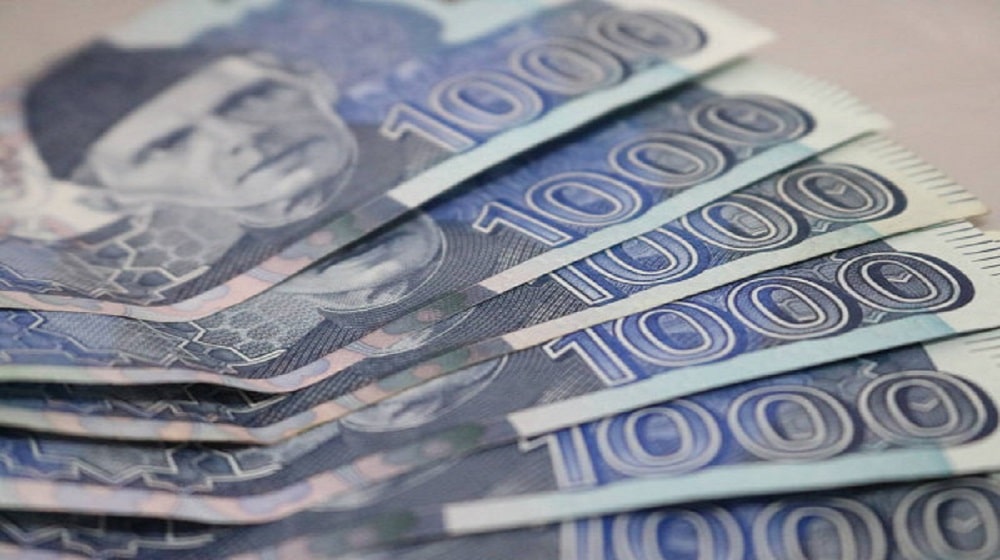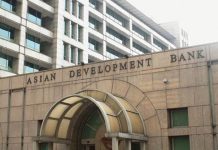By Ali Imran
ISLAMABAD: The government through the Ministry of Finance has launched the auction of the first-ever 1-year tenure sovereign domestic Ijarah Sukuk with the expected return in the range of 16-17 percent per annum.
This is the first time that Pakistan is offering a 1-year sovereign Ijarah Sukuk in the domestic market with 6-month rental payment.
The Sukuk is being offered to all banks, mutual funds, pension funds, the corporate sector, and individual investors looking for Shariah-compliant attractive returns. The Sukuk can also attract high Net worth local and international Shariah-minded investors and those looking to shift from interest-based National Saving schemes offered by CDNS.
The launch of short-term Sukuk will be another step towards the conversion of Government financing to Islamic modes and to provide the financial sector and investors an alternative avenue to invest in Shariah-Compliant Sukuk of shorter tenure.
The initial target set by the Ministry of Finance is Rs. 30 billion and the auction is expected to gain interest in the financial market looking for Shariah-compliant avenues. It can also provide the government an option to discontinue 12 months of T-bills after the Federal Shariat Court decision for the elimination of Riba from the financial sector and the Finance Minister and SBP Governor’s announcement to shift to the Islamic banking system in the next 5 years.
Previously after 2018, the Ministry of Finance issued over 2400 billion worth of Ijarah Sukuk for 5 years tenure, and last month the Ministry also conducted the auction for the 3-year Ijarah Sukuk.
Meezan Bank, along with Dubai Islamic Bank & Alfalah Islamic is acting as Joint Financial Advisor for the Sukuk transaction to the Ministry of Finance and the Shariah Advisory Committee of SBP also approves the Sukuk to ensure its adherence to Islamic law. Meanwhile, Short-term inflation measured by the Sensitive Price Index (SPI) jumped to 38.42 per cent year-on-year (YoY) for the week ending on February 16 driven by high food and fuel prices, data shared by the Pakistan Bureau of Statistics (PBS) showed on Friday.
Last week, short-term inflation was recorded at 34.83pc year-on-year.
On a week-on-week basis, SPI increased 2.89pc compared to a rise of 0.17pc in the preceding week. This is the highest weekly rise since October 27, according to Arif Habib Limited.
The SPI monitors the prices of 51 essential items based on a survey of 50 markets in 17 cities across the country. During the week under review, the prices of 34 items increased and five decreased while 12 remained unchanged. Pakistan has been in the grips of decades-high inflation in the past few months. In January, annual inflation measured by the Consumer Price Index (CPI) spiked 27.55pc — the highest increase since May 1975.
Inflation has been driven in part due to the devastating floods last year that destroyed swathes of agricultural land, leading to a shortage of some food items.
Separately, importers have had trouble getting banks to open letters of credit (LCs) as the country’s foreign exchange reserves depleted to a critically low level. This also drove up the prices of essential items, including flour and pulses, in recent weeks.
Inflation is expected to increase further in the coming months as the government implements conditions agreed upon with the International Monetary Fund (IMF) for an economic bailout, including a hike in electricity and gas prices.
A senior economist with Moody’s Analytics said recently that headline inflation could average 33pc in the first half of the current fiscal year before trending lower.
Low-income households could remain under extreme pressure as a result of high inflation on account of being disproportionately exposed to non-discretionary items.
“Food prices are high and they can’t avoid paying for that, so we’re going to see higher poverty rates as well feed through,” the economist said.






